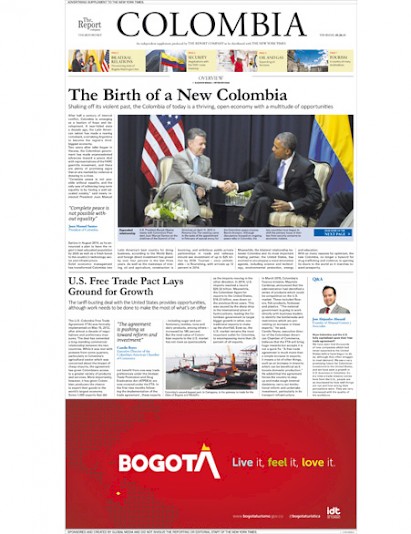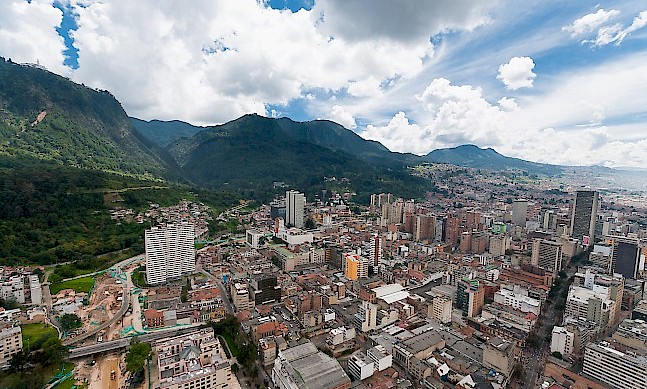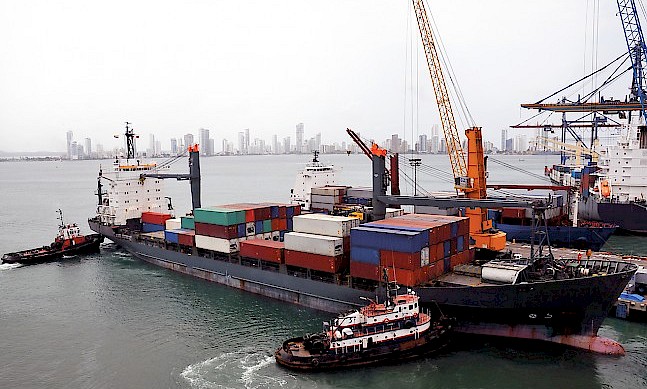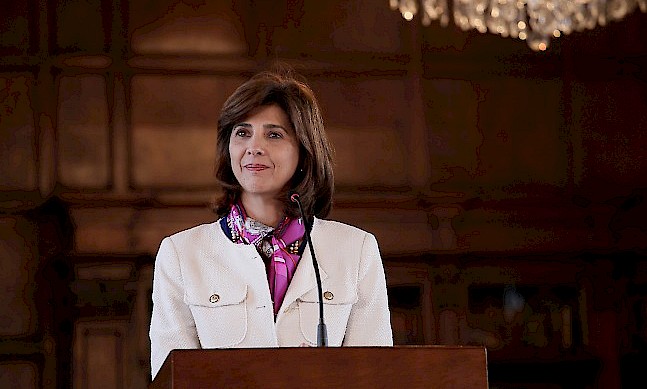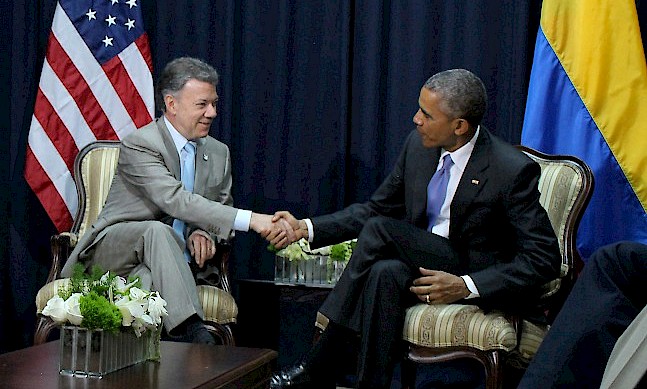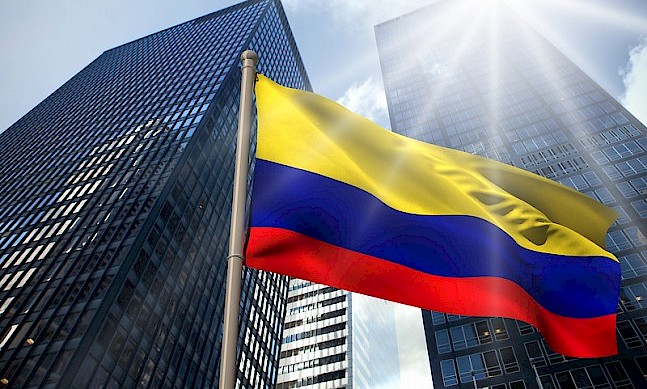Pro-investment government initiatives and an open economy make Colombia Latin America’s rising star for business.
With long‐term political stability, reforms offering foreign business owners better legal protection and improved tax laws, Colombia has created a welcoming environment for investors. As a definitive peace deal between the government of President Juan Manuel Santos and armed guerrillas looks set to open up vast swathes of the country for investment, this already highly regarded economy has become the next one to watch.
Last year, The Economist ranked Colombia sixth in its list of global economies with the best perspectives for growth. Ranking 34th out of 189 countries by the World Bank Doing Business report – ahead of its peers in the region – Colombia is now working to consolidate its open economic model.
Strategically placed free trade zones, dotted across the country, have attracted investors looking to take advantage of its excellent location with ports on both the Pacific and the Atlantic.
“Colombia has undergone a gigantic transformation in the last 15 years.”
Jose Pablo Arango General Manager of Marca Pais
Tweet This“The free trade zones are a complementary activity that helps develop the city, partly through their advantageous duty and tax regimes,” explained Bernard Gilchrist, head of Zona Franca Parque Central, a free trade zone located a stone’s throw from the port of Cartagena, the primary gateway for national and international exports. “The duty free and tax regimes advantages add competitiveness to Cartagena’s logistics performance, acting as a solution for the export industries that want to access Latin American markets,” he adds.
The free trade zones took off a decade ago, when the government improved national infrastructure and introduced federal regulation that gave investors more security. “We went from being a country that received $3 billion in 2004 in foreign investment to over $16 billion in 2013,” said Cesar Caro, president of Zona Franca de Baranquilla and Zofia, one of the newest free trade zones in the Caribbean port city of Barranquilla.
While Colombia’s growing hydrocarbons industry has been the main focus for investors, receiving 45 percent of all foreign investment in 2012, the government is also eager to promote other sectors. According to Juan Gabriel Pérez, executive director at Invest in Bogota, Colombia has a natural advantage in the biotech and life sciences industries because “it is the second-most-biodiverse country on the planet.” Add this to the growing opportunities in logistics and transportation, business process outsourcing and ICT, and the steel and iron industry, and Colombia seems the obvious choice for investors.
But winning them over has not been easy. Decades of conflict have given the country a bad name internationally, something which Marca Pais, the national branding agency, aims to overcome. Set up four years ago, it has made great strides in promoting Colombia and narrowing the gap between perception and reality. Some 350 private companies have joined forces with the brand to promote the country, said general manager Jose Pablo Arango.
“Colombia has undergone, in the last 15 years, a gigantic transformation, much bigger that what people realize,” he points out. This transformation, and the continued work of the government and private sector, is now becoming known around the world as Colombia takes its rightful place as a Latin American investment hotspot.
Fast Facts
Largest economy in Latin America
Fastest-growing Latin American economy
Projected economic growth in 2015


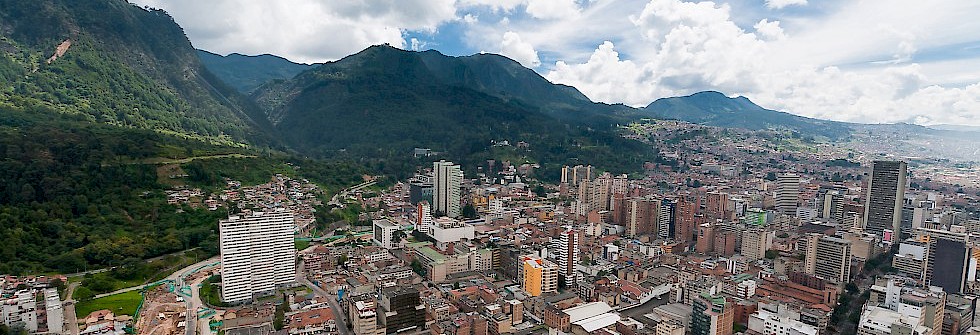 The view of Colombia’s bustling capital, Bogota, from one of its high-rise towers. Photo: Raphael Chay | Dreamstime.com
The view of Colombia’s bustling capital, Bogota, from one of its high-rise towers. Photo: Raphael Chay | Dreamstime.com
